This article was originally published by the UNESCO Regional Office for Eastern Africa.
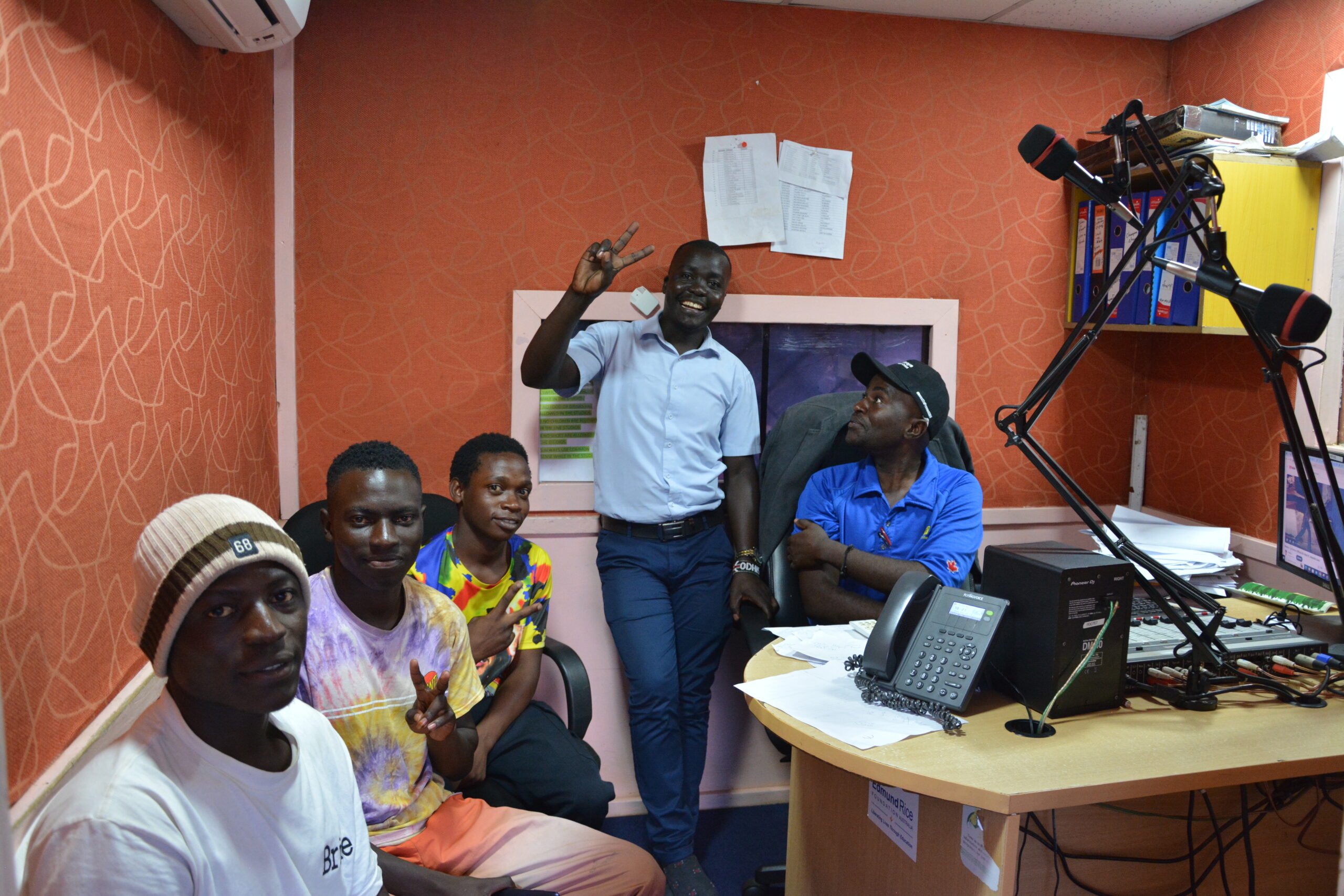
A conversation with Ruben FM, a community radio in the Mukuru informal settlement in Nairobi, Kenya, on how community radios are engaging young people to build peaceful online spaces.
In the heart of Mukuru kwa Ruben Slums, an informal settlement in the lower Eastlands area of Nairobi, three young men are making music in the studio. A music video plays on the laptop adjacent them, featuring a man dancing and singing an energetic, gliding beat.
“They’re making music for the 1PM Youth Empowerment Programme slot,” explains Thomas Ochieng, Ruben FMs’ Station Manager, who is taking us on a walk around the community radio’s workspace. The slot gives Mukuru’s youth a platform to showcase their talents to the community.
Over in the next room, John and Bosco — hosts of the evening youth show — are mic-ed up and getting ready to go on air, pausing just to say hello and smile widely for our camera. Reggae music plays jovially in the background, a favourite among Mukuru’s youth. Thomas informs us that evenings are especially filled with reggae tunes. The genre draws young listeners to the programme, which engages youth on a variety of complex issues that they experience in the community.
Mukuru is an informal settlement that is home to about 600,000 people. The atmosphere in Mukuru characteristic by hustle and bustle synonymous with such settlements: lively chatter, playful children, smoking food stalls and other local industries. We are here to learn more about Ruben FM, Mukuru’s community radio station, and their involvement in a campaign ‘Peace on Air’ under UNESCO’s Social Media 4 Peace project, funded by the EU.

‘If you ask the community around here, they will tell you Ruben FM is a radio station owned by the Mukuru community,’ begins Thomas. Involving the community in the running of the radio station fosters a sense of ownership among its residents and allows Thomas and his crew to continue designing programmes that cater to the community’s needs and concerns. This symbiotic relationship has earned Ruben FM a place of trust among the community, whose residents frequently call in to report issues and share vital information, allowing it to serve as a key mediator and a tool positive change in Mukuru.
However, this was not always the case. When Ruben FM was set up in 2016, Mukuru was emerging from a period of heightened insecurity. Being one among the most densely populated informal settlements in Nairobi, Mukuru residents face challenges accessing basic necessities. Young children and teenagers frequently work to help their parents to supplement their family livelihoods. Some depend on menial jobs, and sometimes turn to anti-social activities to survive.
Back then, a needs assessment by the Ruben Center found that youth were the most frequent perpetrators and victims of insecurity. Cases of robbery with violence, mob justice, police brutality and killings were prevalent and necessitated innovative interventions to reinstate peaceful coexistence in the area.
“Since then, the radio has focused on youth-centered programs to empower young people in the community. It has really worked wonders for us,” Thomas adds.
The spirit of ‘Odhis Odhat’
Thomas is affectionately known as ‘Odhis Odhat’ by the people of Mukuru. “It’s like ‘Or this, Or that’, someone who is always doing something here or there,” he laughs, when we ask him to tell us more about his story. The name is a recognition of the endless energy and versatility with which he serves the Mukuru community.
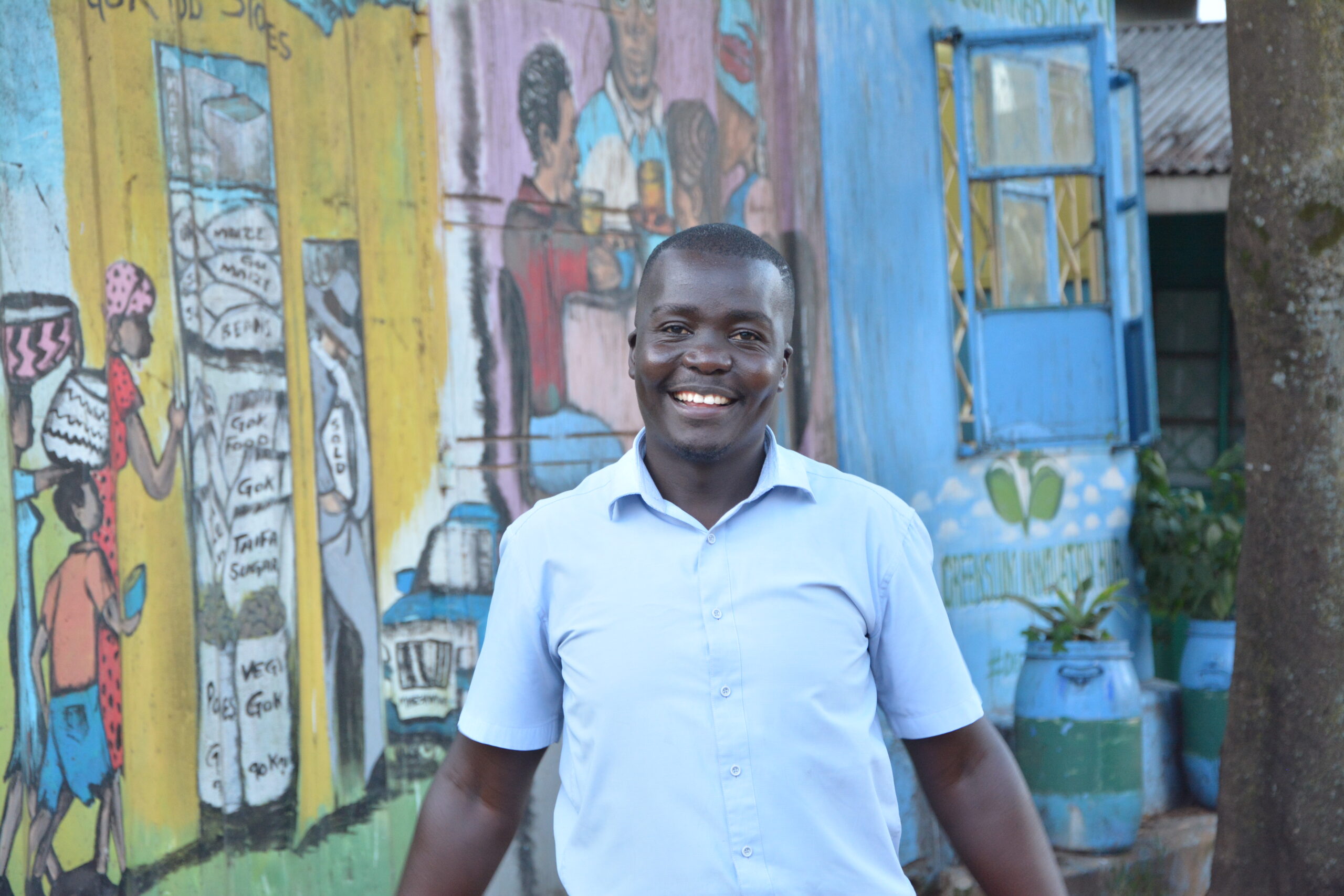
Social Media for Peace Project
UNESCO’s Social Media 4 Peace programme, is an EU-funded project that aims to address the spread of hate speech and mis/disinformation online. The community radio project. Through this project the Association of Kenya Community Media Operators (AKCMO), supported Ruben FM among other radio stations to participate in a national campaign known as “#AmaniOnline” (#PeaceOnline). This is a joint initiative by UNESCO and AKCMO to build the resilience of local communities to online harmful content by leveraging the power and networks of community-owned media—especially for frequently underserved populations in rural and informal settlements.
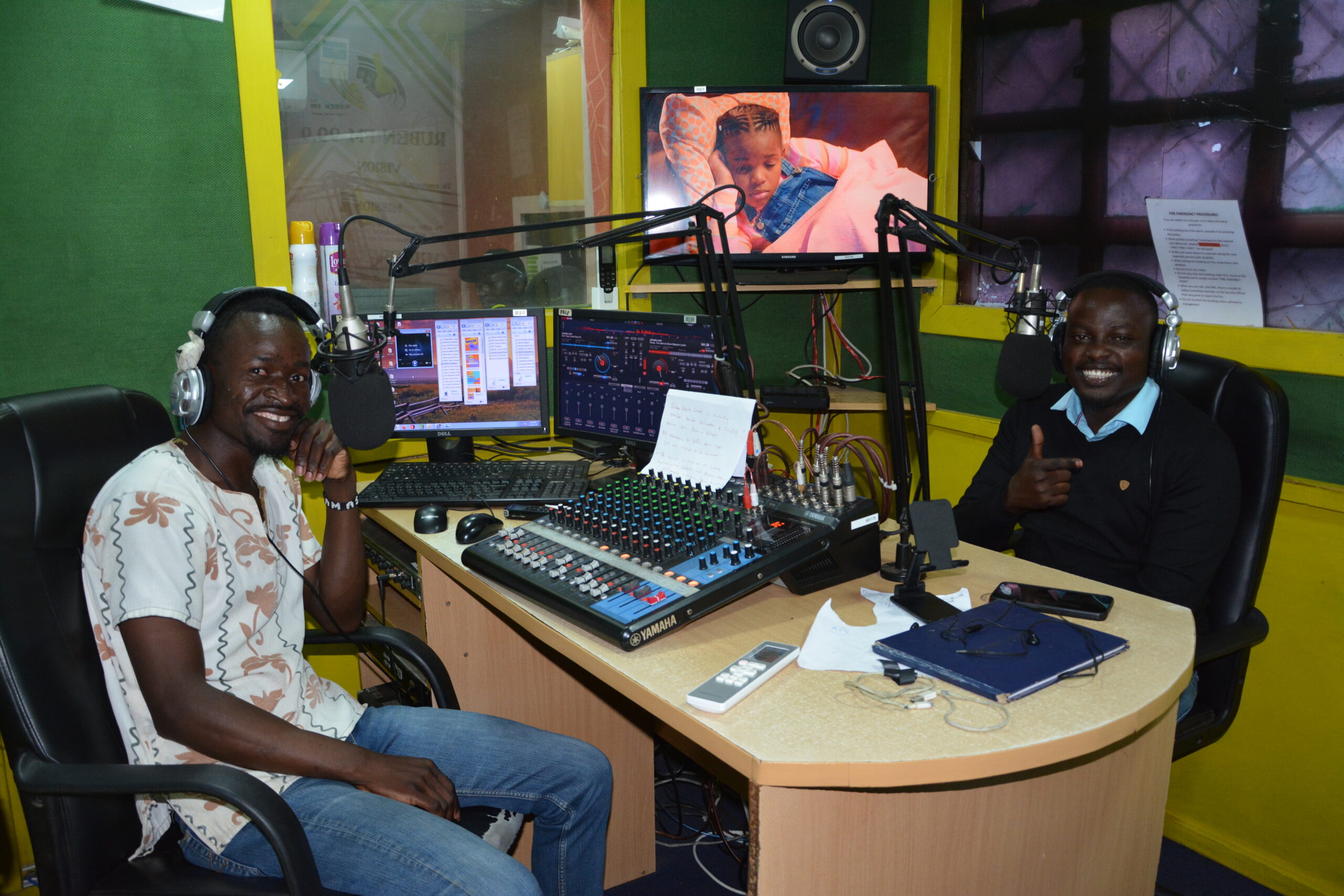
With the growth of internet access in urban informal settlements in the country, Mukuru residents and especially the youth have access to information more freely and readily at their fingertips. However, it also renders the community more vulnerable to the effects of hateful content in information ecosystem, including hate speech-incited physical violence and especially when in the hands of unsuspecting youths.
“The people of Mukuru are always seeking opportunities to improve their lives,” explains Thomas. “While this is mostly positive, it can sometimes lead to negative engagements with others, especially if the well-being of one group is pitted against another.”
“We need to equip individuals with the mindsets and tools to not only benefit themselves but also to uplift their communities.” — Thomas Ochieng, Station Manager, Ruben FM
Changing Attitudes
To what extent has a community radio like Ruben FM contributed to peace in Mukuru since 2016? “When we established the station a year before the 2017 general elections in Kenya, our foremost goal was to ensure that no election violence would be witnessed in Mukuru,” recalls Thomas. To achieve this, Ruben FM staff undertook a series of offline activities in and with the community to sensitise them on the importance of maintaining peace especially during elections. Local authorities, youth representatives, community leaders and ordinary residents played equally important roles in maintaining Mukuru’s peace, even as other parts of the country were affected by election-related violence and chaos in 2017.
‘Building peace is not a one-off activity in a community. You need to have continuous engagement,’ Thomas asserts. During the evening shows, the radio continues to run a programme focused on peace to ensure that they sustain the conversation on peace both online and offline.
The sky has turned into a pale dusky blue by the time we conclude our conversation. Thomas takes us outside to walk the Ruben Center compound, which also houses a community hall, urban garden and health center. Inside the hall, a group of young people are engaged in a Zumba session, moving energetically to the music.
Peeking into these rooms as we wind up our short tour, we witness the co-creative spirit which fuels Mukuru’s community radio. Ruben FM’s slogan ‘unganisha jamii’ (unify the community) presents a model of peacebuilding that acknowledges the everyday importance of community media as the “glue” and propagator of a community’s values and aspirations. It is a model that gives young people a stake in their community and empowers them to contribute their energies to preserve, protect and promote its peace and well-being, both online and offline.
Funded by the EU, UNESCOs ‘Social Media 4 Peace’ project seeks to strengthen the resilience of civil society to potentially harmful content spread online, while protecting freedom of expression and contributing to the promotion of peace through digital technologies. In Kenya, UNESCO works with a variety of networks and partners from regulators to community media to transform the digital ecosystem into one that is safe and empowering for all.





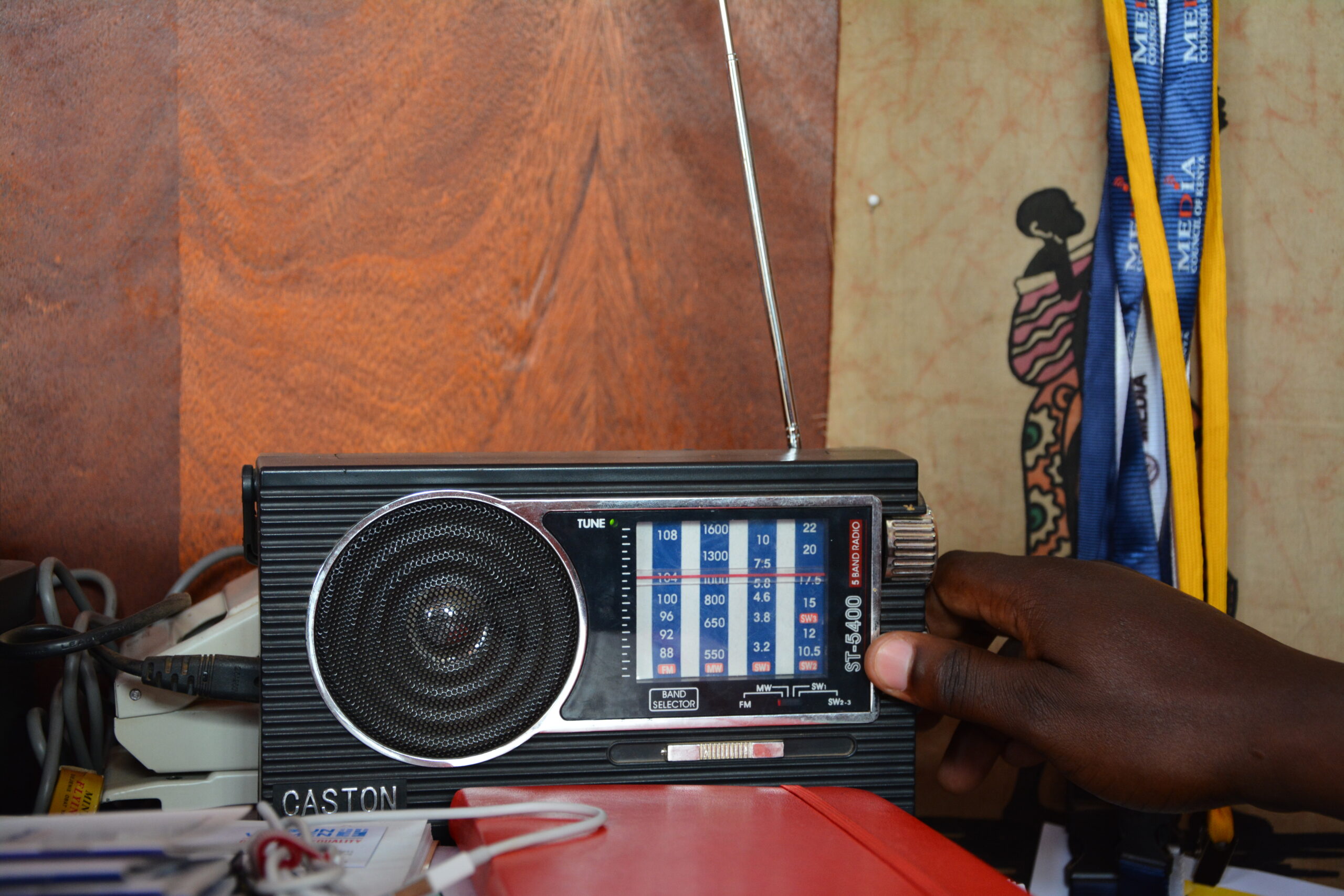
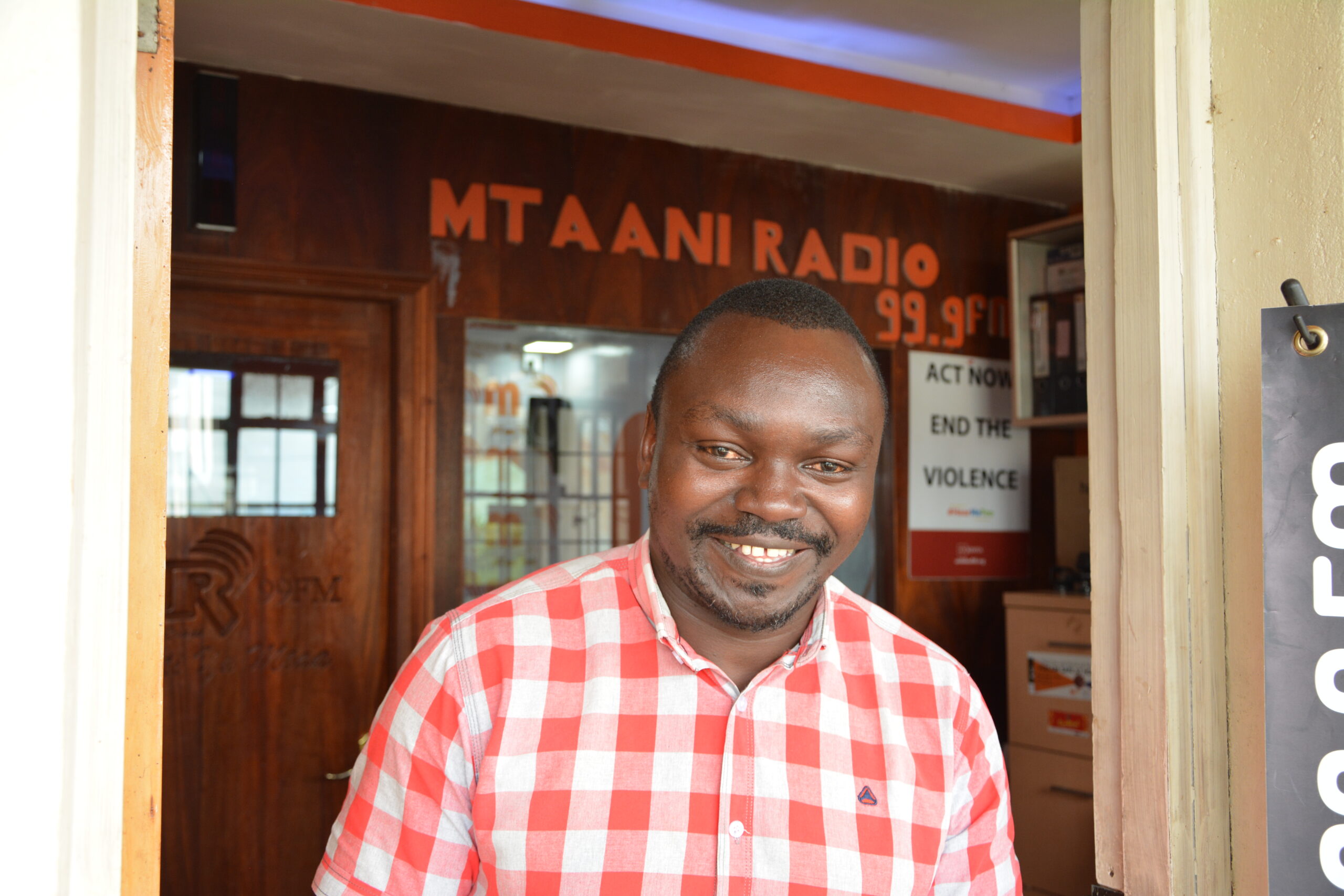




 The National Coalition on Freedom of Expression and Content Moderation in Kenya welcomes Tanda Community Network (Tandanet) as its newest member.
The National Coalition on Freedom of Expression and Content Moderation in Kenya welcomes Tanda Community Network (Tandanet) as its newest member.